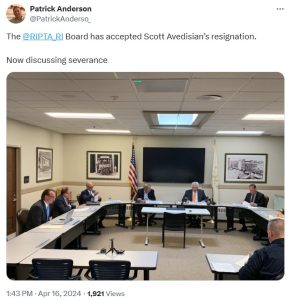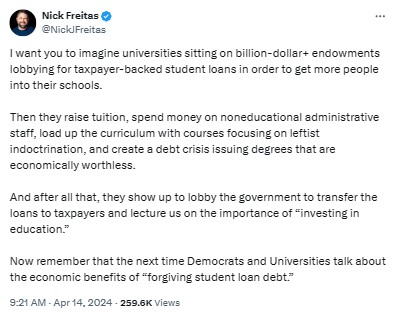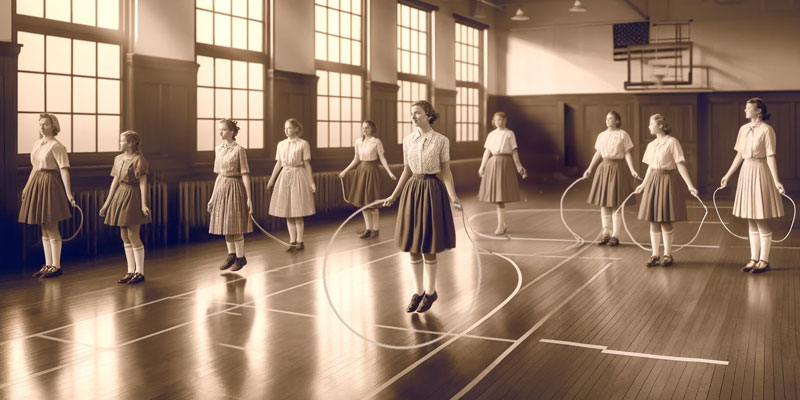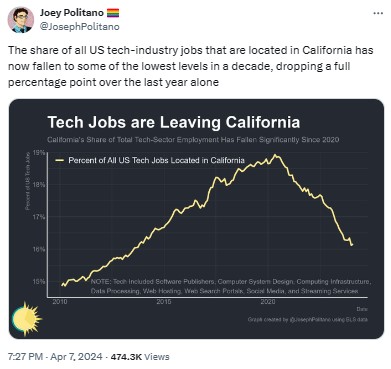Here’s the Boston Globe’s description of the people leaving Massachusetts:
Boston Indicators, the research arm of the Boston Foundation, published an analysis exploring trends in so-called domestic outmigration in Massachusetts, or people leaving for elsewhere in the United States. Looking at a two-year average across 2021 and 2022, the analysis found that the people moving out of Massachusetts were predominantly white, middle- and high-income earners, and college-educated.
Particularly dire: Working-age adults are leaving in droves. On net, Massachusetts lost an average of 22,631 people ages 25 to 44 across 2021 and 2022 — the largest number of any age group and a marked increase over previous years, according to the report. For perspective, that’s about the size of the population of Winchester.
It’s been about 20 years since I started warning Rhode Island that our data told a similar story, and I coined the term “productive class.” Rhode Island and now Massachusetts are driving out precisely those people who move an area forward: those who are primed to transform their time and talents into productive activity.
Lose these folks and, as we’re seeing in precipitous experience in the Ocean State, you get the government plantations, which involves special interests using government to make government the areas core occupation by finding clients for government services and looking for excuses to bill other people. That model won’t last long, probably not even to the point that the mid-career special interests are ready to cash out and move to Florida.
[Open full post]Whatever one thinks of Avedisian, seeing Alviti in this picture is a reminder that state government incompetence can harm the lives of hundreds of thousands, but it’s the guy who leaves the scene of a fender bender who’s shown the door.
[Open full post]As he’s done for a long time, Mark Steyn zeros in on the truth with panache:
There are times, however, when it is necessary not to conceal it. This week’s Trump Trial of the Week is the bazillionth attempt by the ruling party to nail the leader of the opposition on …something, anything, whatever’s to hand. So naturally a certain artfulness is required. In this case, if one accepts as true the charges of corrupt prosecutor Alvin Bragg, Trump paid former crony Michael Cohen to pay off Stormy Daniels. Which would be a falsification of business records. Which is, under the “laws” of New York, a misdemeanour – albeit one in which the statute of supposed limitations has already kicked in. So Bragg is arguing that the expired misdemeanour is actually a non-expired felony, because it was used to cover up another crime.
What other crime he has not said. And, as is now familiar in the State of New York, the corrupt judge Juan Manuel Merchan has been happy to indulge him.
… why all the Trump cases wind up in the hands of this particular Biden donor is a mystery to me.
Well, actually it isn’t: much of “American justice” is stinkingly corrupt. QED.
One wonders if the enormity of the corruption has become its own incentive for Democrats to turn a blind eye. Once down the road of acknowledging it, what else might be overturned?
[Open full post]On WNRI 1380 AM/95.1 FM, John DePetro and Justin Katz discuss:
- Raimondo hits the next level of self-promotion with 60 Minutes
- McKee bridge promotion to distract, dictate, and buy media favor
- Block considers a billboard
- The story of the Washington Bridge
- Always looking for COLAs
- What’s gone wrong with housing in RI
- Ruggerio’s steady position during unsteady health
Featured image by Justin Katz using Dall-E 3.
[Open full post]As shocking videos emerge of progressive fascism showing its antisemitic face, Nick Freitas’s on-point observation here comes to mind:
Americans have been had in a major way (this issue not the least), and I’m not sure there’s any way to turn things around.
[Open full post]One has to wonder such things after seeing posts like this, from Rhode Island Democrat State Senator Tiara Mack:
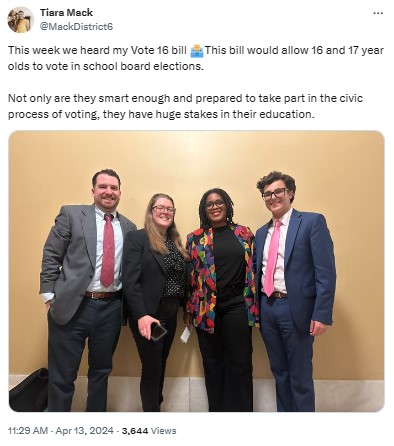 Teenagers lack the maturity and experience to know what it is they need to learn or how it should be taught. Raising doubt about adults capacity in this regard would be a fair response, but for this purpose we draw the line at 18. If anything, given the lengthening of adolescence in modern America, we should be considering a move in the other direction — opening elections only when people are a bit older.
Teenagers lack the maturity and experience to know what it is they need to learn or how it should be taught. Raising doubt about adults capacity in this regard would be a fair response, but for this purpose we draw the line at 18. If anything, given the lengthening of adolescence in modern America, we should be considering a move in the other direction — opening elections only when people are a bit older.
In any event, giving teens a means to vote themselves other people’s money would be more of a disaster than Rhode Island already faces.
While we’re on the matter, contrast Mack’s suggestion with progressives’ antipathy to school choice. One suspects she wants kids voting in government school elections because they’ll be easier for radicals and union organizers to manipulate.
[Open full post]I grew up in a world in which girls didn’t have any right to participate in sports programs — whether school, town, city, or other programs. It was the accepted practice I found wherever I moved as a child; my dad was an air traffic controller, and promotions often meant going to a new state.
As a young girl, I was very interested in playing organized sports because I enjoyed playing with my friends in backyards, streets, playgrounds, and grammar school recesses. No problem, I thought… until I tried to join a baseball team in Reading, Pennsylvania, at the age of 10. There were no girls’ teams, so I tried to join the local boys league. My reaction to the discrimination of being refused was to cry with disappointment. I didn’t understand the reasoning, so I asked my mom and dad for help. They contacted the coach and argued my case, but they were helpless, too. I resented that, just because I was a girl, I couldn’t join and play.
My father kept watching for the chance to move closer to family, so he applied for assignment to the New Bedford Municipal Airport, and he got the job. When I was 12, we moved to Fall River, Massachusetts, where my mom and dad had grown up.
I started Morton Junior High in seventh grade and was excited about the new adventure of gym class on my schedule. During the ’60s, girls had to wear these awful A-line blue gym suits with pantaloons. I walked past the beautiful gym on my way to the locker room and was confused, when after we’d changed into our gym outfits, the instructor told us to make two lines, space ourselves, and face her.
Space ourselves for what?, I wondered. Unbelievably, my gym class was held in the locker room, not the gym. The gym was for the boys. The girls exercised in the locker room. Once again, I went home upset. Once again, I reported the situation to my mom, who was at a loss for words. Alas, once again, I found there was nothing that could be done.
I found the same reality when we moved to Tiverton and I went to Pocasset School. At the time, the town did not have a high school, so we had school choice. My family chose Mount St. Mary’s High School, which had a basketball team. Although I didn’t make the team, I was encouraged by the possibility.
In 1966, I joined what would be the first graduating class from Tiverton’s new junior-senior high school. Unfortunately, a new building did not mean new thinking, and there were no competitive sports programs for girls.
We did have gym class in the actual gym, although the partition remained shut, and the equipment was on the boys’ side most of the time. Equipment wasn’t the only thing missing from the girls’ experience. The girls’ version of basketball was so boring. You could dribble the ball three times and then had to pass it. No running. I asked the teacher why the boys had a very fast, fun, competitive game and we did not. I don’t remember any answer beyond having to play by the rules, which meant no fun.
It was supposed to be a time of liberation, so some of the girls interested in competitive sports started a petition, and everyone interested signed it. We presented it to the principal, who said he would get back to us. A couple of days later, we were told the school department did not allocate any money or budget for competitive girls’ sports programs… other than for cheer leaders. The school had no budget to pay a coach, buy uniforms, or pay for busses.
Title IX changed all this in 1972. The schools had to fund and offer competitive sports for girls.
When I had daughters, I was grateful they would have a chance to shine in competitive sports in towns, cities, and schools and possibly even earn scholarships for college. They didn’t have to be frustrated always sitting on the sidelines, not being able to participate because discrimination was simply accepted.
Unfortunately, it’s starting to look like the success of girls’ and women’s sports, allowing us to compete against each other on an equal footing, is now in jeopardy. Now that girls are no longer stuck in locker rooms or on the empty side of a partition, biological males are asking to compete against them. In state after state and sport after sport, girls reaching for the golden ring are having it snatched from their grasp.
Obviously, the story we’re told is very different. We’re not told that discrimination against girls is acceptable, but somehow giving girls their own sports is discrimination! The effect is the same. When I was a girl, I couldn’t take a spot on the boys’ team. Now, biological boys get to play on their own teams and the girls’.
Featured image by Justin Katz using Dall-E 3 and Photoshop.
[Open full post]Unfortunately, Rhode Islanders don’t want it. The Ocean State could be a beacon collecting some of tech jobs California is losing, as Joey Politano shows here:
Rhode Island is so in the grip of its special interests and ideologues that they’d rather imitate California than create opportunity.
[Open full post]As I suggested in a post this morning, it’s an error to think we can impose requirements on the status quo and not risk any loss of what we have. “Diversity, equity, and inclusion” (DEI) principles are the archetype of this thinking. Admittedly, I don’t know whether a U.S. Navy officer who didn’t notice that the scope on his AR was backwards, among other errors, in a photo-op — not to mention the assistants who prepared it and the media professionals who developed and promoted the post — was a victim of DEI, but it’s a good warning sign, nonetheless.
The more we prioritize things that are irrelevant (at best, nice to have) to jobs, the more likely it is that the people who take them will lack some other experience. We don’t live in a world in which there are just so many identically good candidates for every role that new requirements will have no effect. Pretending otherwise is going to get a lot of people killed.
[Open full post]The featured image of this post compares the original cover of Mountain Music by the band Alabama with the censored version now used for music streaming services. I should specify that I’m not alleging the band and the companies that manage its music were forced to make the change by a government agency, but censorship it is, nonetheless.
In January, I argued that Americans on the political left are wrong to insist that nobody be allowed to see the Confederate Flag as a symbol representing Southern cultural heritage disconnected from the Civil War. The meaning of symbols can change, and we should not assume the absolute worst intent in somebody who makes use of a symbol to which we respond negatively. The Mountain Music modification drives the point home and illustrates the depth of our loss when we discard historical perspective.
Here are some of the lyrics from “Changes Comin’ On,” a song on the Mountain Music album:
Ford unveiled the Mustang
Things looked good in Detroit for the people there
And I could feel the changes comin’ on
From Atlanta, Doctor King told the world he had a dream
People followed him
And daddy said my hair was getting longI could feel the changes comin on
People started singing different songs
Searchin’ for the place where they belong
I could feel the changes comin’ on
No doubt, young progressives will find an excuse to scoff, but that this song was on an album adorned by the Confederate Flag points to something important. You erase a whole lot of people — good people — when you hide their complexity.
To my eye, the juxtaposition of “Changes Comin’ On” with the Confederate Flag is a powerful indicator that the forces of tolerance, pluralism, and respect had won so thoroughly that the separatists couldn’t even claim their own symbol. Their progeny had changed their beliefs, and the United States had absorbed their flag as regional marker.
As always, with pluralism, and as used to be characteristic of the United States, that absorption came with an invitation to evolve and be honored. By the 1980s, we were able to raise up the good and American values that had gone so wrong in the Civil War, as distinct from the racism and dehumanization that had always been at odds with our founding principles. We were moving on to a better future.
We impoverish ourselves when we draw a big red X through the possibility of such changes, and the past decade or two have shown the division and danger of such impoverishment.
[Open full post]


